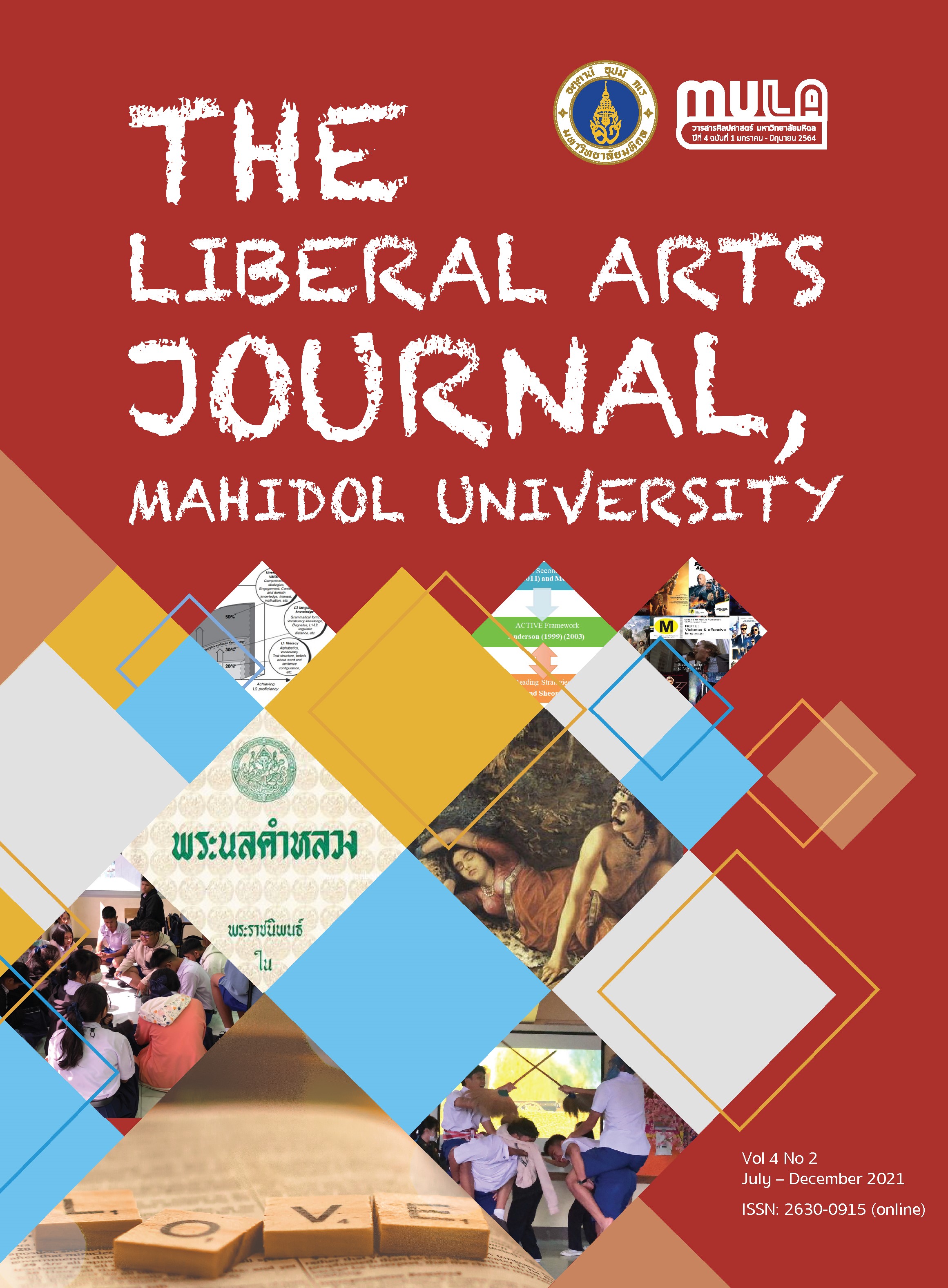The Comparison of learning achievement in “Lilittalengpai” Applied Learning Management by using Active Learning and Dramatization Method of 11th Grade Secondary Students
Keywords:
Learning achievement, Lilittalengpai, Active Learning, Dramatization MethodAbstract
The objectives of the study were to assess learning achievement and satisfactionlevel of 11th grade secondary students who studied “Lilittalengpai” an Active Learning and Dramatization Method. The sample group for this study was composed of 11th grade secondary students in the 2st semester of the 2020 academic year at Woranarichaloem Songkhla School, Songkhla province. The number of classes was one class. There were 31 students in the class, and Cluster Random Sampling was used, in which the classroom was the unit of sampling. The research instruments used in this study were: 1) Six lesson plans based on the Active Learning and Dramatization Method: 2) A multiple-choice test of 20 items, with 4 choices per item, and: 3) questionnaires regarding the satisfaction of study towards achievement in “Lilittalengpai” by using Active Learning and Dramatization Method of Applied Learning Management. A subjective test designed to assess essay writing ability (Essay test), included one item. The statistics used were arithmetic mean, percentage, and standard deviation (S.D.): And, mean, standard deviation (S.D.), and t-test were used to compare the results obtained from the pre-test with those from the post-test.
The results show that: 1) the average 11th grade student’s achievement’s in the study of “Lilittalengpai”. using the Active Learning and Dramatization Method was significantly differently at .05, with an average. have pre-test score of ( = 15.38) higher than the average post-test score (
= 12.16): 2) the overall satisfaction of 11th grade secondary students towards learning by using the Active Learning and Dramatization Method showed satisfaction at the highest level (
= 4.72) This implies that the students were more motivated to study. Moreover, the students were able to analyze literature better.




